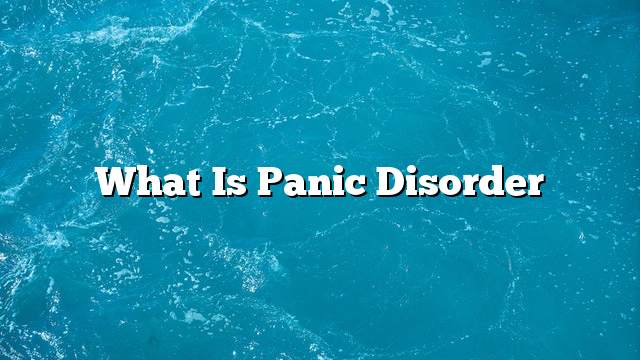Panic disorder
Panic disorder is a chronic and debilitating psychiatric condition. It is a very common anxiety disorder that many people do not know, even doctors from different disciplines and fields. The patient suffers from severe fear of death, getting out of the house, or loss of consciousness or mind. Sudden, frequent, simultaneous and unexpected seizures are associated with a sense of danger and loss of control over the body or the soul without a real and clear source of danger or fear, and panic disorder occurs as a result of brain dysfunction in the secretion of some nerve cells.
Symptoms of panic disorder
- Heart palpitations very quickly, vibration in the left chest muscle due to the intensity and acceleration of the heartbeat.
- Tremors of the limbs or a sense of trembling and trembling, in addition to a sense of suffocation, and narrowness of the airway, and pain in the chest area.
- Feeling dizzy, nausea, unbalance, head heaviness, frequent headaches, confusion, anxiety and tension.
- Feelings of coolness and heat in the human body, in addition to feelings of weakness, numbness and sweating.
Causes of panic disorder
There is no clear cause of panic disorder, but there are a number of factors that make a particular person more susceptible to this disorder. The most important of these are:
- Genetics: The injury of a family member, especially first-degree relatives, increases the risk of panic disorder.
- Age range: This disease affects people in their early 20s.
- Sex: Panic disorder is more common in women than in men.
- Other factors: Taking drugs and alcohol increases the incidence of panic disorder, as do exposure to trauma or stress.
Treatment of panic disorder
- Antidepressants: Antidepressants increase the level of serotonin in the human body, controlling the function of the autonomic central nervous system in the body. In general, doctors recommend different types of antidepressants such as benzodiazepine, common beta blockers that reduce heart palpitations and chronic panic disorder.
